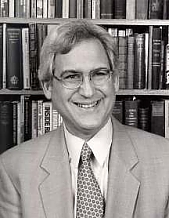I FIRST MET Edward Green more than 20 years ago while living in New York and studying the Aesthetic Realism philosophy of Eli Siegel. What I began to learn then was certainly a revelation and has been influential in my thinking and work ever since. Edward Green has recently been honored with a listing in International Who's Who in Music. As a faculty member of both the Manhattan School of Music and the Aesthetic Realism Foundation in New York City, and a published author of a number of articles, Mr. Green is an important new voice on the American music scene.
The works I have seen are "What Greater Love? Anthem for Good Friday"; "This Is the Land the Sunset Washes" with a text by Emily Dickinson; "Three Songs from William Shakespeare's As You Like It"; and two versions of Psalm 19:1-4, "The Heavens Are Telling." All are well crafted. They have both a feeling of rightness and originality.
"This is the Land the Sunset Washes" is beautifully composed and arranged for SATB chorus with piano. The piece is true to what is known as the Siegel Theory of Opposites or the Aesthetic Realism philosophy of Eli Siegel. It shows both assertion and sweetness, power and grace. There is effective text painting on the phrase, "Dip and vanish like Orioles!" as the voices decay to silence.
"What Greater Love? Anthem for Good Friday" -- also for SATB chorus (unaccompanied) -- is appropriately somber but with a kind of daring confidence as the opening minor mode suddenly turns to major on the downbeat of the second measure. Is it mere coincidence that this sudden major chord appears with the word "cross"? The meter is 3/4, a time signature often associated with the waltz. Yet this is no macabre dance. Rather the effect is one of energetic assertion as the question is asked, "What greater love could one man show, could one man sustain?"
For children's choir (or SA treble choir), there are "Three Songs from William Shakespeare's As You Like It." Rare indeed is the work for children's choir that contains vocal music comfortably within the reach of the average school chorus but with sufficient interest to keep adults happy. The interest is supplied by an inventive piano accompaniment, playable by pianists of the late-intermediate to early-advanced level.
The crowning achievement among the several works are the two settings of "The Heavens Are Telling," featuring the often used text from Psalm 19. Green's treatment is a refreshing departure from the familiar bombast of nearly every other version published. The composer has stated that his inspiration for the piece came from observing the stars in the heavens at night. What he saw was the beauty of creation speaking not in stentorian blasts but in dulcet tones, with a luminous and steady twinkle. Thus the work begins with a mezzoforte dynamic on the Swell division of the organ. The accompaniment works equally well on piano. (One is grateful for a score playable on the organ, what with so many accompaniments these days being geared toward the piano only.) The harmonic language is at once modern and conservative, no mean feat for any composer. The part-writing is mildly chromatic but with largely stepwise motion, keeping the music within the reach of amateurs while providing interest for the professional choir. The climax of the piece occurs on the words, "There is no speech nor are there words; yet their voice goes out through all the earth." The piece tapers off to an almost niente pianissimo on the words "to the end of the world." The text painting is logical and effective, not sentimental. The work is available both for SATB choir and SSAA chorus.
All four pieces are evidence for what Eli Siegel, the American poet and critic, taught in the philosophy of Aesthetic Realism, which he founded in 1941. "The world, art, and self explain each other," he wrote, "each is the aesthetic oneness of opposites." As these works soar and are yet precise, as they are gentle and at the same time strong, as they assert and then yield in controlled decrescendos, we feel more at one with the world itself, which contains the grandest examples of opposites, such as in its mighty oceans and gentle morning breezes.
All works are available from Frank Warren Music. Any of these pieces would be a sparkling addition to any choral library.
